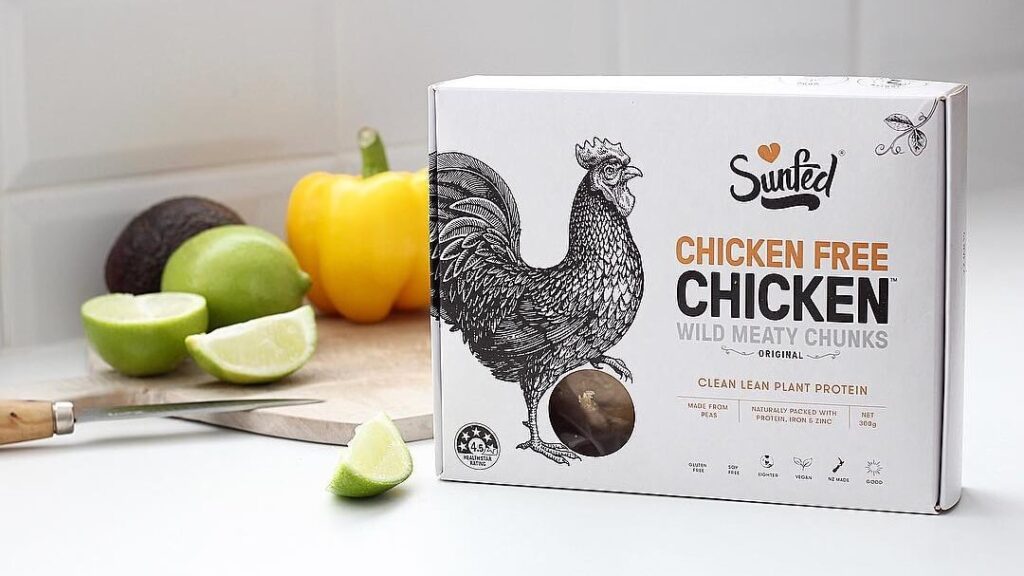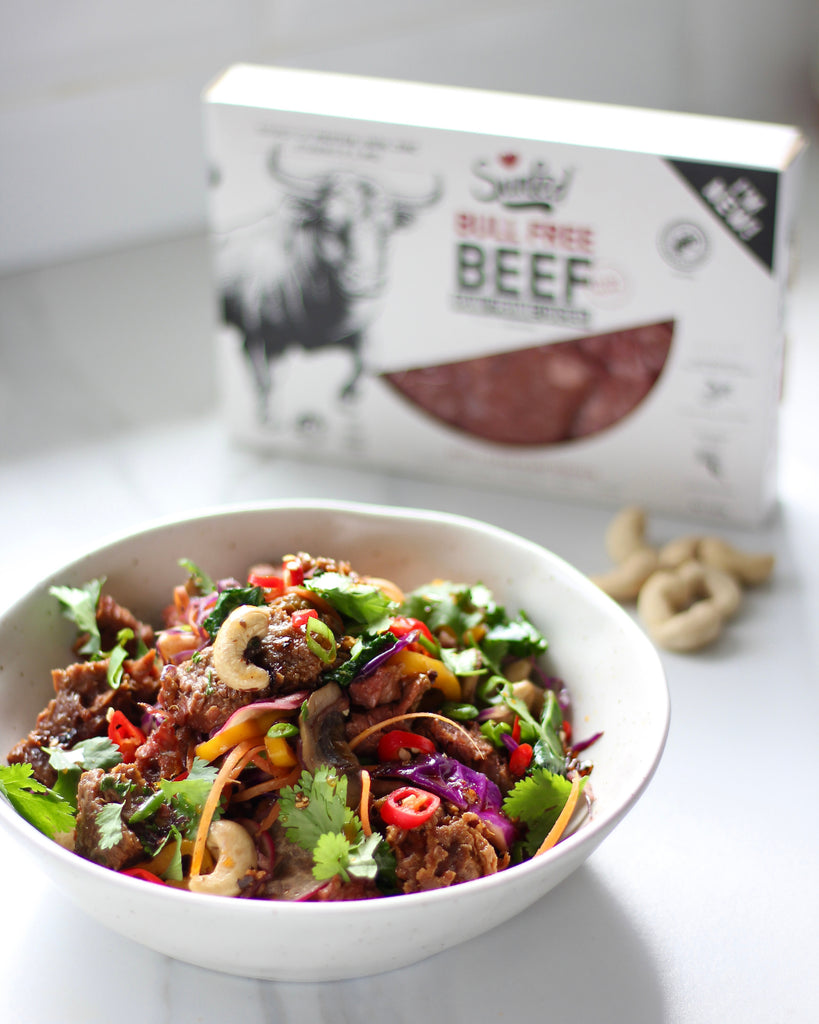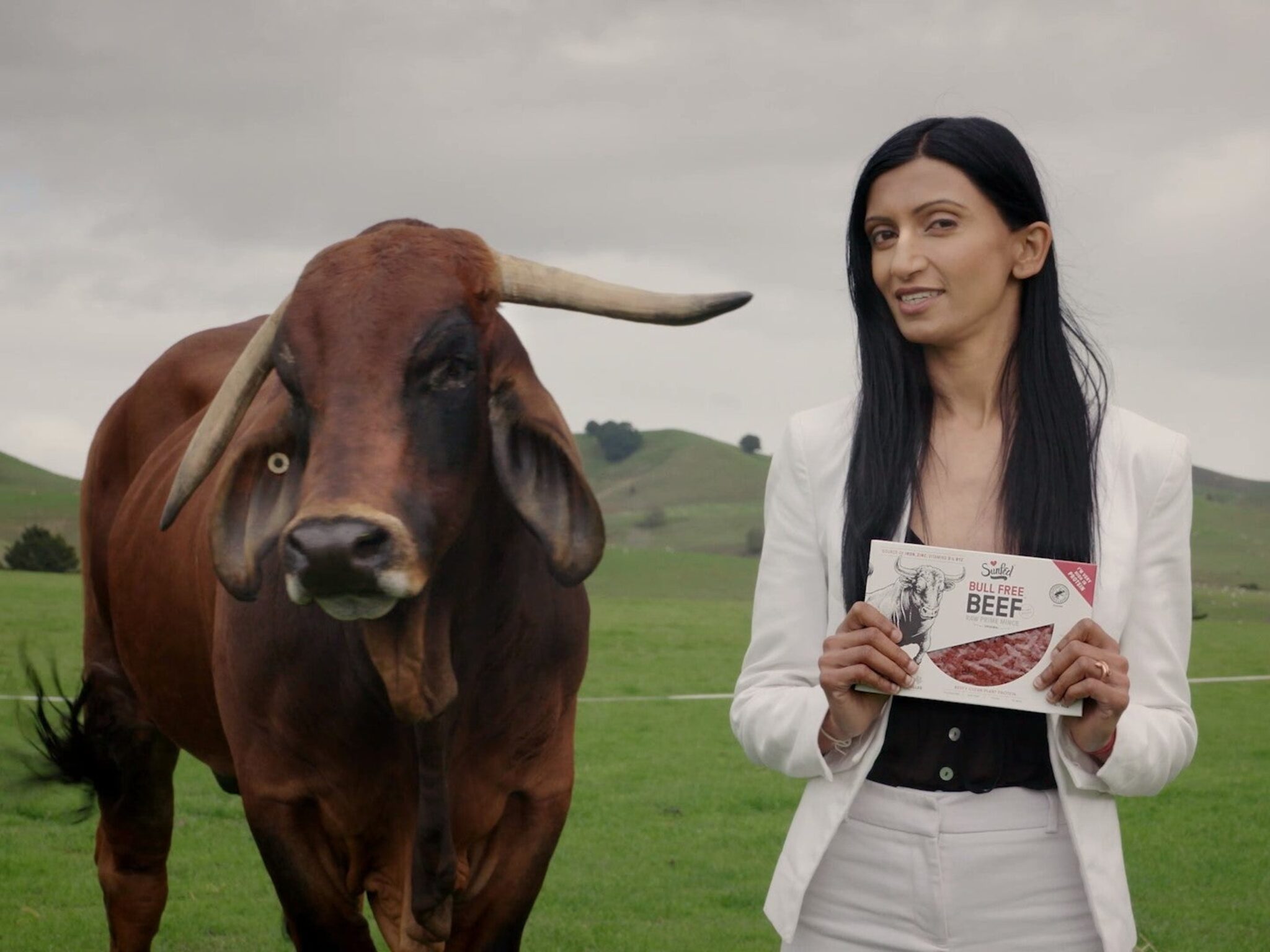New Zealand Plant-Based Pioneer Sunfed Meats to Shut Down After Post-Pandemic Pressures
5 Mins Read
One of Asia-Pacific’s foremost plant-based meat companies, New Zealand-based Sunfed Meats, is shutting down after facing supply chain pressure, high costs, and a loss of faith from its investors.
A week after it emerged that investors have slashed the company’s valuation to zero, Sunfed Meats founder Shama Sukul Lee has confirmed that the Auckland-based plant-based meat startup is closing after nearly a decade in operation.
In a video posted on her social media channels, Lee confirmed reports that the brand’s products were no longer available in Australia after inventory ran out in January. Its remaining stock in New Zealand is set to dry up in the next two months.
“Despite Sunfed’s self-evident competence in unique products and manufacturing and FMCG, Sunfed’s VC investor did not see value in that. And that is of course their prerogative, as they can put their money elsewhere where they can get bigger, faster, easier valuation returns,” said Lee. “It probably needs to be said that Sunfed’s VC investors chose not to clear the way for Sunfed, but instead held on to their preferential claims, which complicated new capital options for the company.”
Sunfed Update pic.twitter.com/AYZTOJ8bQ1
— Shama Lee (@ShamaSukulLee) April 8, 2024
A plant-based meat pioneer in Asia-Pacific
Lee founded Sunfed Meats in 2015 as one of Asia-Pacific’s first plant-based meat startups. Its first product didn’t come into the market until 2018, but the Chicken Free Chicken was instantly popular among consumers and drove the brand’s growth.
The company’s portfolio is focused on clean labels with a base of pea protein, faba bean protein, extra virgin olive oil and yeast extract. “I was not happy with the vegan junk food options in the market and wanted to see if we could make something which would offer the good things about meat, namely nutrient density, low-carb and allergen-free,” explained Lee.
“I was also not interested in making mince or its variants like burgers, but instead wanted to make fully formed whole pieces, and it was important to me to make these as cleanly as possible using simply heat and water,” she added. (Although the company did add a minced SKU, presumably to meet market demand.)
Lee outlined that the company had four phases of growth to chart: R&D, market validation, productisation, and breaking even. She and her husband bootstrapped the business with NZ$112,000 and faced plenty of challenges as a young startup. “The whole thing looked doomed to fail, but we eventually had some major breakthroughs.”

In 2016, the company received NZ$1.2M from several VCs during its market validation stage, before its chicken analogue shot the brand to success. It entered all major grocery stores in the country, and led to another $10M capital injection, $5M of which was from Australian VC firm Blackbird Ventures. The investment would allow Sunfed Meats to set up a hygienic food facility, novel manufacturing lines, and an FMCG supply chain, as well as develop and launch new products.
Its portfolio soon expanded to Boar Free Bacon, Bull Free Beef and Fish Free Tuna, and the company’s success saw it turn over NZ$4M in revenue and enter the Australian market. But just as it was looking to move into its profitability phase, things took a turn with the pandemic.
Post-Covid troubles had investor ‘write Sunfed off’
Describing it as “Covid hell”, Lee explained that Sunfed Meats went into “chronic business survival mode” just to keep production going. “There was one crisis after another, with staff shortages, supply chain disruptions and skyrocketing costs.” But Sunfed Meats managed to ride the wave and keep supermarkets stocked,” she said.
“We were pretty battered and bruised afterwards and needed a capital injection to get on top of things. Unlike other companies in this plant-based space, Sunfed did not take hundreds of millions of dollars of investment,” she noted. The last investment round was in 2018, and Lee said that the startup’s achievements since receiving “that minimal investment” have been “self-evidently remarkable”.
“However, it also meant that we ran very lean for far too long with not much resources for growth activities, such as distribution and marketing. With Covid, new capital had become harder as markets tightened up and priorities shifted. And Sunfed’s existing VC investors were no longer interested in supporting the business.”
She added that investors had “written Sunfed off”, explaining that a lot of venture capitalists had jumped into the “plant-based gold rush thinking they could get fast valuation returns” as is the case in the digital space, but manufacturing and FMCG have a lot more complexity and moving parts, and are hence a longer-term play.

Eventually, Sunfed was not able to become profitable, and Lee had to make the decision to shut down the company due to unfavourable market conditions. “It has been an edifying decade-long journey in starting, building and now closing Sunfed. I’ve been humbled by it and I’m grateful for it. Thank you for the adventure,” she said.
It is currently unclear how many jobs are affected, but LinkedIn indicates that the company has 14 employees.
Lee noted that it’s a “fact that the plant-based bubble burst” and the category has been “undergoing a reality check”. “Fuelled by easy VC money, the category became saturated with junk food masked as healthy, and people now see through that. This also made it more apparent just how different Sunfed is, and why customers value it,” she explained.
The plant-based meat sector has had a tough couple of years globally, with investment and sales on the decline, and startups like New Wave Foods, Ordinary Seafood and Nowadays ceasing operations. Within Asia-Pacific, while Australia and New Zealand overtook Singapore as the most well-funded alternative protein region in the first half of 2023, this only totalled $20M, an 87% decrease from the previous year.
However, brands like Australia’s v2food are seeing revenue growth (at 6% per year), and between 2022 and 2023, the number of meat analogues in the country’s supermarkets grew by 14%. And to offer dissatisfied meat-eaters a novel take on meat, Vow is in the middle of a public consultation phase to receive regulatory approval for its cultivated quail product in Australia and New Zealand, following its greenlight in Singapore last week.



